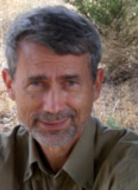This year, the German Academic Exchange Service (DAAD) will be offering the following opportunities for students attending a Canadian university:
- Study Scholarships for a full master’s degree program at a German university or for a study at a German university as part of a postgraduate or Master’s degree program completed in the home country
- Research Grants are awarded to candidates who have completed a Master’s degree or in exceptional cases a Bachelor’s degree at the latest by the time they begin their grant-supported research, or PostDocs, or to individuals wishing to earn a doctoral degree in Germany.
More information on DAAD Scholarships and Grants
Nomination of Candidates by York
The Canadian Centre for German and European Studies (CCGES) acts as a university representative for the DAAD at York (DAAD Partner University) and will be responsible for conducting a pre-selection of York’s applicants. We therefore ask all students to follow the application procedure as specified by the DAAD and then to submit copies of their applications to us, no later than:
- Thursday, October 22, 2015 for Study Scholarships
- Monday, October 26, 2015 for Research Grants
After those dates you will still have the possibility to apply directly to the DAAD (deadline on November 4, 2015 at 11:00 pm Central European Time); however we would strongly encourage students to submit their applications to the internal pre-selection as receiving York’s nomination increases their chances of succeeding in the competition.
Please note that the pre-selection does not concern applicants from Artistic Fields who should apply directly to the DAAD head office in Bonn (deadline on October 31, 2015 at 12:00 midnight Central European Time)
Application process:
1. Prepare and submit your application through the DAAD portal according to the DAAD instructions. Please note that you will not be able to modify your application once you submit it.
2. Submit copies of you application to CCGES. Applications should be submitted in an envelope clearly marked to the attention of prof. Heather MacRae, and dropped off at the Political Science reception desk (Ross Building S672) by 4:30 pm on the deadlines indicated above.
If you are unable to submit the application by that time, please contact prof. MacRae at hmacrae@yorku.ca
Contact Information:
If you have any questions or require clarifications on the pre-selection process at York please contact prof. Heather MacRae, CCGES Co-director at hmacrae@yorku.ca
If you have any questions regarding the DAAD application process, please contact Myoung-Shin Kim, DAAD Program Officer, at kim@daad.org


